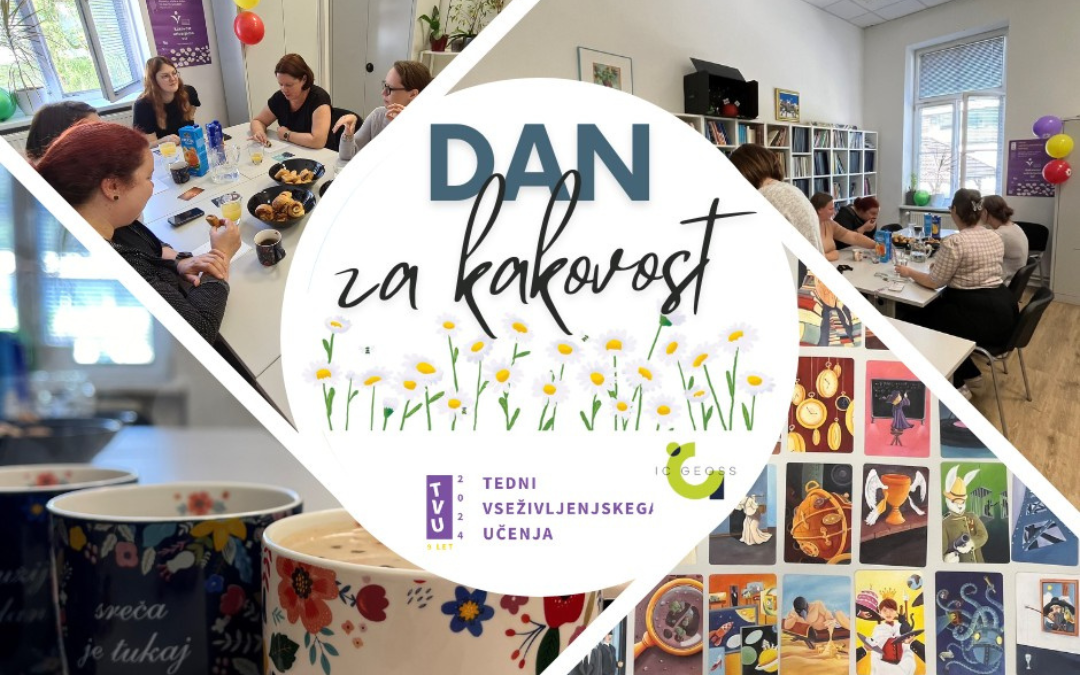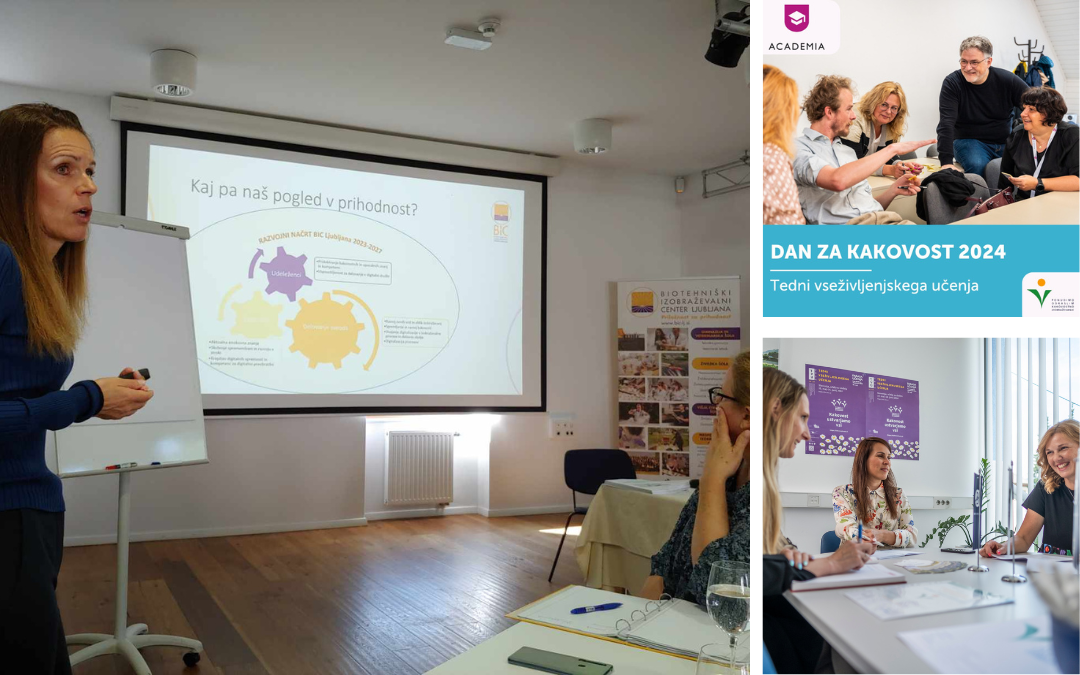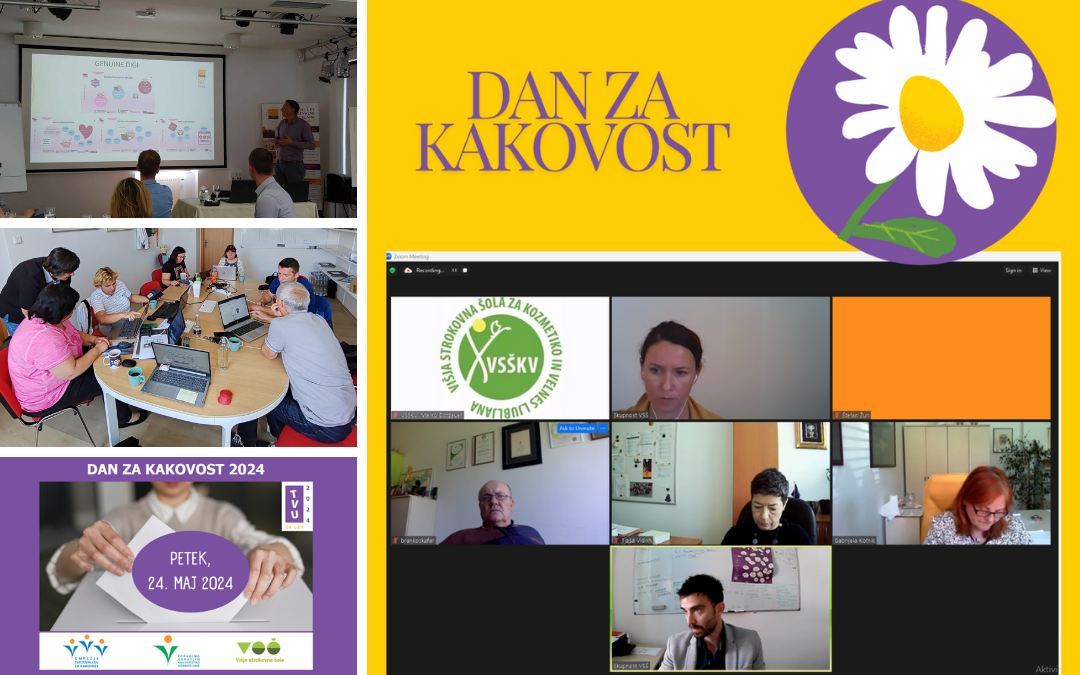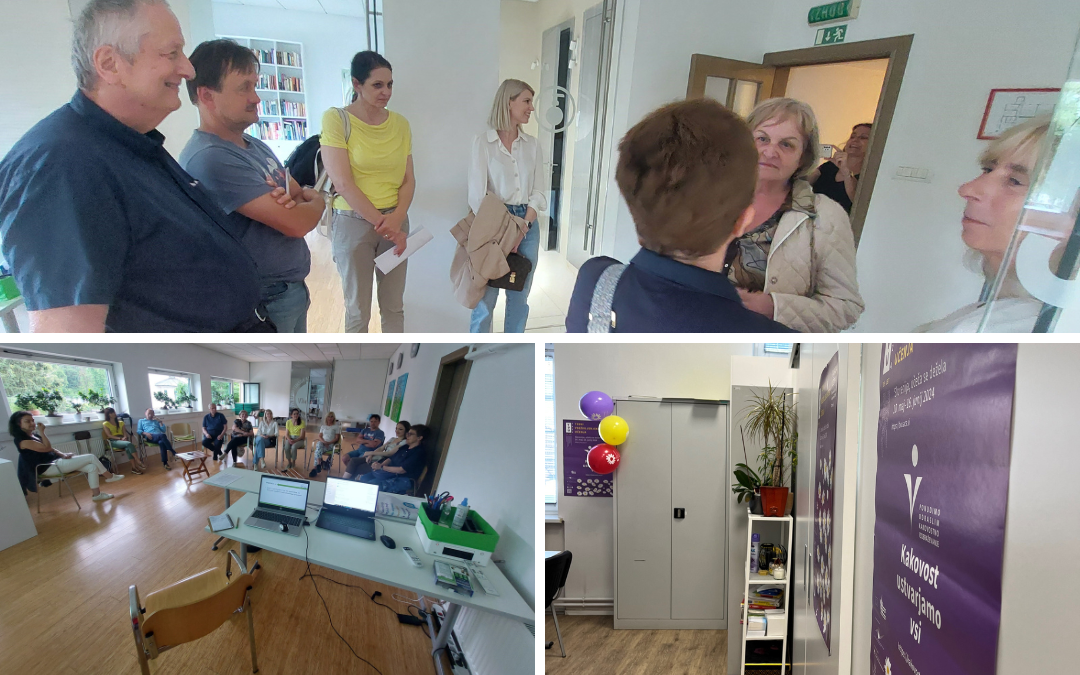Higher vocational education in Slovenia is an important segment of the education system. It provides education and training for professionals needed by both the economy and society. Its flexibility and close alignment with professional standards allow it to respond swiftly to the current labour market needs and integrate the latest trends in various fields into its programmes. The quality of operation and cooperation of students, lecturers and the educational environment, as well as strong connections with industry, contribute to the proper implementation of study programmes. There are numerous activities aimed at ensuring and enhancing quality. These include addressing key questions about the quality of ALE (when can we speak of it, who is responsible for it, how do we recognise it), promoting the quality system, exchanging good practices, providing additional training, holding discussions, reviewing self-evaluation questionnaires and more.
Quality Day – 24 May 2024
On this year’s Quality Day, schools undertook a variety of activities. At the Association HVC, we organised a meeting of the Quality Commission. We focused on information provided by representatives from NAKVIS about targeted evaluations and the inclusion of students in the register of evaluation experts for up to five years after graduation. At the same time, we have already begun planning the 2025 Association HVC Conference.
Evaluation insights and discussion on self-evaluation
On Quality Day, the Higher Vocational College L.I.V.E. Maribor received the final report on the external evaluation of the school. They presented both processes: self-evaluation and external evaluation. They outlined the measures to improve the quality of the college’s operations. At the Geoss Education Centre, a guided workshop was held to discuss the results of the self-evaluation and plan the next cycle.
Digitalisation strategy and action plans
The Biotechnical Educational Centre Ljubljana dedicated Quality Day to further planning the preparation of the centre’s digitalisation strategy. Staff members presented the foundations, starting points and several examples of good practices. The activities were professionally moderated by Dr Janja Milič Velkaverh using the Six Thinking Hats method. They identified four critical areas of digitalisation and developed an action plan. The Quality Commission of the Ravne na Koroškem School Centre gathered to prepare an action plan and design a new structure for self-evaluation reports. A central initiative focused on the creation of a template for such reports and adapting the proposed Rules of Procedure at the level of the Association HVC.
Relevant skills for quality higher vocational education
At the Higher Vocational College for Cosmetics and Wellness Ljubljana, staff participated in planning and setting guidelines and activities for the next Quality Conference. They focused on enhancing the quality of higher vocational education in Slovenia and ensuring the provision of relevant competencies and knowledge. In doing so, they considered the needs of the economy, higher vocational colleges, students, lecturers and society. They also conducted focus groups with lecturers and, separately, with the institution’s management, seeking solutions to improve the school’s performance in the field of communication and organisation.
Green Quality Logo, internal evaluation, exchange of good practices
As part of the 20th anniversary of the Green Quality Logo, special attention was given to promoting this achievement. Academia has been a proud holder of the Logo almost since the inception of the award. On Quality Day, they promoted the Logo and conducted an internal evaluation in preparation for an external evaluation according to the ISO 9001:2015 quality standard. At B&B Kranj, the day was dedicated to three key activities: exchanging good practices, the role of the quality advisor and celebrating the 20th anniversary of the Green Quality Logo.
Every day is a day for quality
Quality is a shared responsibility of all stakeholders in higher vocational education. Therefore, it is essential to strive for the continuous improvement of study programmes, the teaching process and student support. To work with quality means to work well every day. Through ongoing efforts and collaboration among all stakeholders, higher vocational education in Slovenia can continue to maintain excellence and meet the needs of students, employers and society.
Natalija Klepej Gržanič (natalija.klepej@skupnost-vss.si), Association HVC and Jasmina Orešnik Cunja (jasmina.oresnik.cunja@acs.si), SIAE




